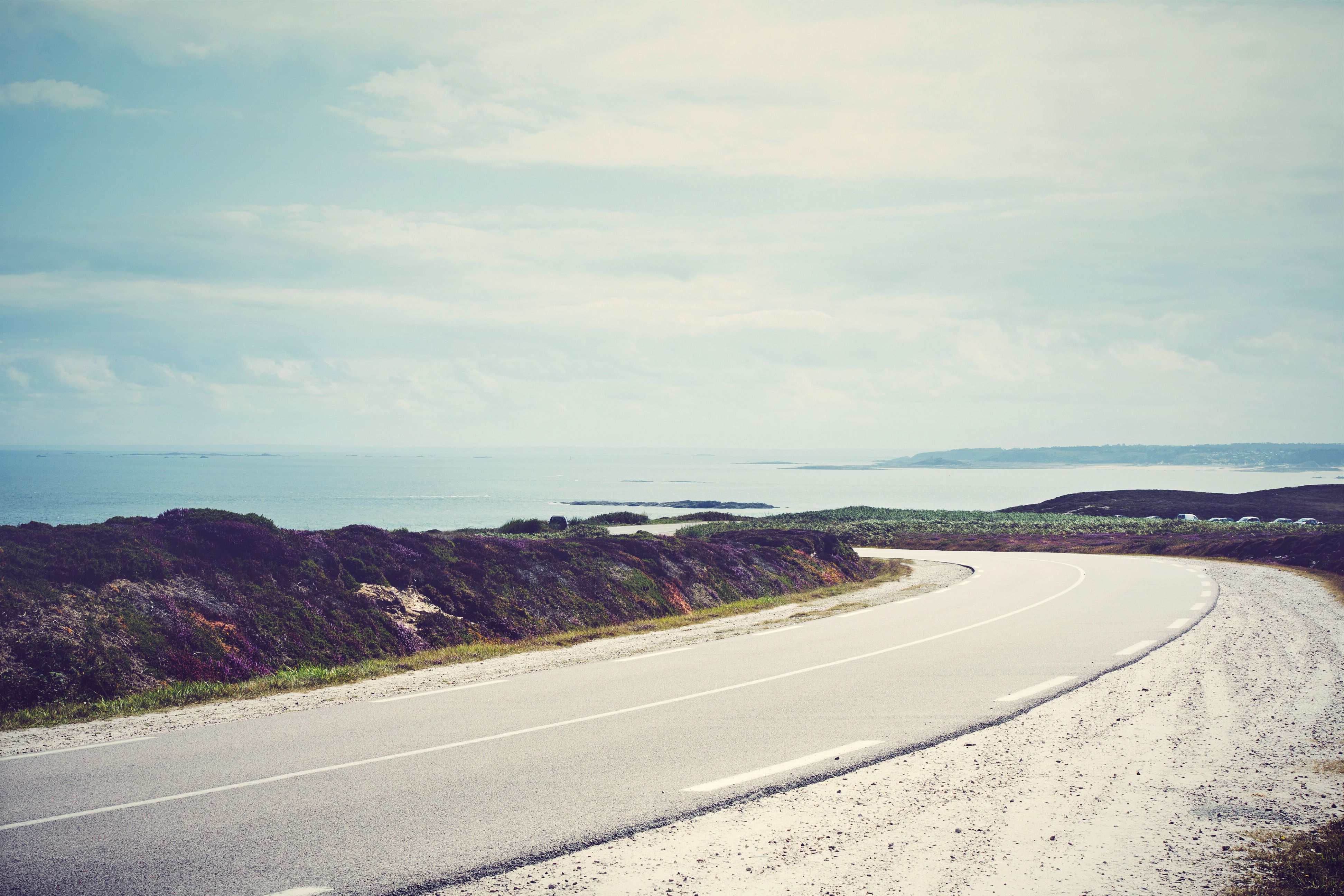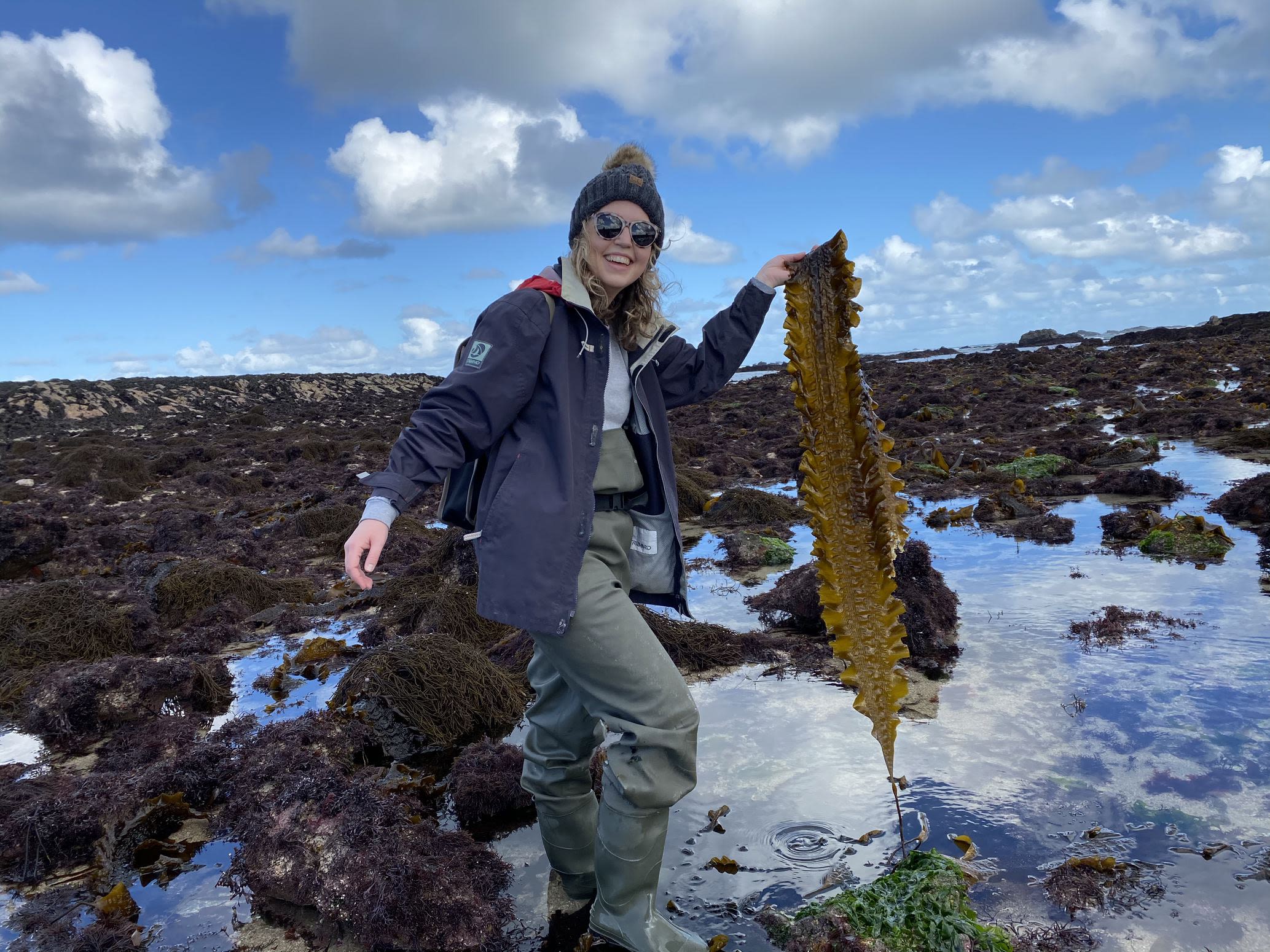
Studying abroad — from under the sea
A Triple Dawg, Allison Fortner is working on her doctorate in agricultural leadership, education and communication and her graduate certificate in international agriculture — rethinking the seaweed industry as she goes


Where are you from, and why did you choose to study at UGA?
I am from Cleveland, Georgia, in the northeast Georgia mountains. All my life, my dad worked at UGA as the manager of the instrument shop designing and building research instrumentation for various researchers at UGA.
I grew up knowing I wanted to go to UGA simply for this reason, but what really solidified my desire to study at UGA was a visit held before an interview for the Agriscience and Biotechnology section of the Governor’s Honors Program in 2011.
The CAES Ambassadors took anxious high schoolers all around CAES, showing us the various labs and opportunities within the college. I instantly fell in love with CAES and knew UGA was the only place I wanted to study.
As an undergraduate, I loved the idea of a more tight-knit community that would help me find my place on such a big campus. When I came back to UGA for graduate school, ALEC had become much more research-focused. I also loved that there were opportunities for me to incorporate a love of international travel into my graduate research through my advisor’s connections!
Why did you choose your field of study?
Through the National FFA Organization, I found my love for the people of agriculture, and I fell in love with communication during my high school yearbook class.
This made agricultural communication the perfect fit, though I applied as a biological science major before a high school anatomy class convinced me I was not suited for that particular field of study.
After completing my undergraduate degree in 2016, I worked in marketing for the wonderful folks at Super-Sod, communicating about turfgrass and compost. However, I found I wanted to know a bit more about how to analyze the effects of my communication.
When I came back to UGA looking for a graduate program, I found pursuing a degree in ALEC would be the perfect fit because of the growing research and analytics focus. Plus, ALEC had a newly minted Ph.D. program.
This meant I could start with my master’s research and then delve more deeply into the theory behind communication with the Ph.D. This is the perfect place to make connections between seemingly unconnected industries and meet students with various research interests.
I also knew studying in ALEC under the guidance of my advisor, Alexa Lamm, would provide me the chance to tailor my degree to my specific interests. Because of this, I’ve been able to pursue my certificate in international agriculture and work with some amazing people from across the world!
What has been your favorite class? Favorite instructor?
I have two favorite classes: ALDR 6710, "International Agricultural Development," and AGCM 8700, "Communicating Ag and Environmental Science Innovation."
I may be biased, but Alexa Lamm has been my favorite instructor in my graduate studies. She takes so much of what I learned in the professional working world and helps me think about the theory behind it. I have gotten to make connections between what I know about industry and academia in her classes, and it has been a delight.
What has been your best experience at the college?
If I’m thinking in terms of my time in graduate school, the best experience I’ve had so far is traveling to France during spring 2022 to complete my international agriculture internship with the Safe Seaweed Coalition.
I spent nine weeks in France in the Alps, Paris, and the Brittany coast. I was immersed in French culture and language, learned about the seaweed industry, helped my French colleagues communicate about seaweed to global audiences, and ate chocolate croissants to my heart’s content. I loved getting to interact with researchers from across the world, and I gained a new appreciation for working across cultures.
When I think of all of my experiences at UGA, my favorite have been those in which I get to talk to students and faculty across campus about themselves and their research. Each conversation I have makes me a better science communicator.



What do you want to do with what you have learned here?
I would like to apply what I have learned either as a faculty member at a research institution or in the non-profit sector.
I am passionate about drawing parallels between seemingly unconnected industries — like agriculture and seaweed — and seeing how these industries can learn from one another. My communications, leadership and education classes have given me skills to navigate these complex relationships, and I hope to use that in the future.
How has your experience at UGA changed you?
My experience at UGA has challenged me to see the world in a new way through each year spent here.
In my undergraduate career, I made some of my closest friends and gained the skills and confidence to start a professional career and travel the world.
In my graduate career, I have made unlikely friends with whom I get to share the joys and stresses of graduate school and everyday life and have learned to see the world around me through the lens of research.
I have been given opportunities of which I could only dream while being challenged beyond what I thought were my limits. None of this would have been possible without people who believe in and support me at UGA.







A boat harvesting the seaweed species Saccharina latisimma. (Photo by the Scottish Association for Marine Science)
A boat harvesting the seaweed species Saccharina latisimma. (Photo by the Scottish Association for Marine Science)

Allison Fortner holds up a leaf of Saccharina latissima among a dense population of wild seaweed in Plougeurneau, France.
Allison Fortner holds up a leaf of Saccharina latissima among a dense population of wild seaweed in Plougeurneau, France.

Allison Fortner presents her research at the 2022 Cleantech Symposium.
Allison Fortner presents her research at the 2022 Cleantech Symposium.

Allison Fortner shows off her Instagram research for CAES.
Allison Fortner shows off her Instagram research for CAES.

Allison Fortner takes a bike ride along the coast in Roscoff, France.
Allison Fortner takes a bike ride along the coast in Roscoff, France.

In French, a sign next to the water reads, "The oceans are alive!"
In French, a sign next to the water reads, "The oceans are alive!"
What does agriculture mean to you?
To me, agriculture means a community of people committed to feeding the global population through constant innovation to address the challenges of a changing world.
When I was growing up, I didn’t really like helping my mom in the garden or being around animals, and I thought that excluded me from agriculture. Now the agriculture industry has touched every part of my life — from my family to my studies to how I see the world.
I just want to show people the beautiful complexity of this industry by adding to and sharing my knowledge and experiences.
What do you like to do outside of class?
I love to try new recipes, spend time soaking up the Georgia sunshine with my friends and family, and spend evenings trying local Athens restaurants.
I’m always excited to spout off travel tips to my friends who are planning their next great adventures.


